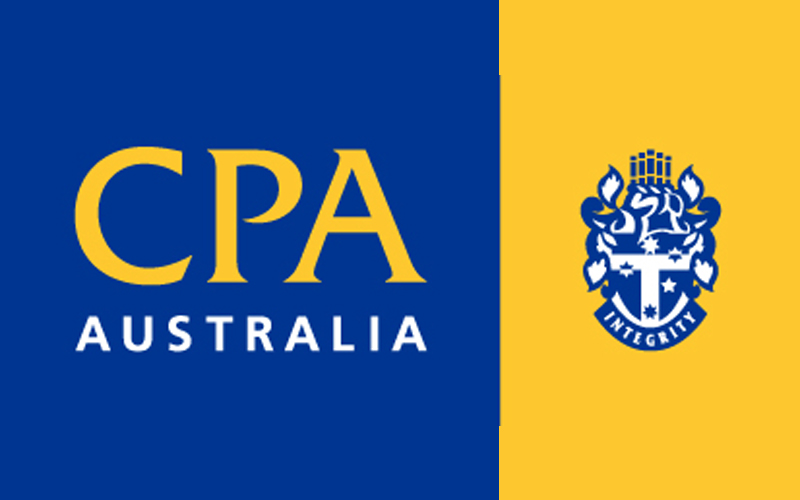CHINA – Media OutReach – 2 April 2020 – The 11th APAC Small Business Survey conducted by CPA Australia reveals that 44 per cent of small businesses in Hong Kong had sought external funds for survival in 2019, while 25 per cent of respondents experienced difficulties in paying debts last year and 29 per cent expected the difficulty to continue.
This suggests that nearly three in ten of small businesses in Hong Kong expect to have immediate and severe liquidity issues in 2020 even before the COVID-19 pandemic.
Only 37 per cent of surveyed small businesses in Hong Kong reported that they grew in the past 12 months, the lowest on record and down by 19 per cent from 2018. However, 61 per cent of small businesses had sought external funds with 44 per cent for survival, which is the only surveyed market where the percentage of businesses that required external finance was higher than the percentage of businesses that reported growing.
Mr. Janssen Chan, CPA Australia’s Deputy Divisional President 2020 and Chairperson of SME Committee in Greater China indicated that according to the survey findings the challenges for Hong Kong small businesses were very difficult in 2019, “We have seen that the businesses in Hong Kong had experienced a lot of challenges last year, but the situation was worse than I expected. 25 per cent of respondents experienced difficulty in paying debts in 2019, while 29 per cent expected these difficult circumstances to continue in 2020. This implies nearly three in ten of Hong Kong small businesses expect to have cashflow problems this year. In addition, since the COVID-19 outbreak, we foresee a higher percentage of small businesses may collapse in the next 3 to 6 months as a result of a sharp decline in business turnover and the lack of positive cash flow to stay afloat.”
“While small businesses in all surveyed markets were most likely to access external finance for the purpose of business growth, the percentage of Hong Kong’s respondents accessing external funds for survival was the highest amongst all markets in the APAC region. Political instability (44 per cent) and poor overall economic environment (37 per cent) were the biggest negative factors impacting Hong Kong businesses last year. Coupled with the COVID-19 pandemic this year, the present situation for Hong Kong small businesses has become even more severe, and many will struggle to survive this crisis.”
Chan commented, “We note that the Hong Kong Government has introduced a series of relief measures to address local SMEs’ financial burden including low-interest loan schemes, reduction of profits tax, introducing utility subsidies and cash handouts to incentivise domestic consumption.
These measures are very timely and will relieve the financial burden of many SMEs – particularly those carrying bank loans. The Hong Kong Monetary Authority’s recent cutting of the CCyB rate, the principal moratorium policy launched by various banks in Hong Kong and the recently launched 100% loan guarantee under the SME Financing Guarantee Scheme may also relieve current debt pressure on SMEs.”
Considering only 26 per cent of respondents expect their business to grow and 73 per cent of all surveyed respondents have intentions to access finance in the next 12 months even before the COVID-19 pandemic, CPA Australia recommends that the small business owners should consider evaluating the existing corporate leverage ratio and forecasting sales revenue before accessing new external finance.
Like other countries globally, small businesses in Hong Kong have been severely affected by the COVID-19 pandemic. In particular, small businesses in the retail, catering and tourism industries have been facing many challenges in operating brick-and-mortar businesses.
“Given the results of profitability from the investment of technology and doing businesses online in Hong Kong are below the average amongst the surveyed markets in 2019, there is a significant room for improvement. It is time for the Hong Kong small businesses to consider transforming their business to respond to changing consumer behaviour and technological trends.” Chan said.
Only 43 per cent of respondents in Hong Kong said they had generated more than 10 per cent of their income from online sales last year, compared with 82 per cent in neighbouring Shenzhen and 86 per cent in Guangzhou. Further, compared to only 30 per cent of respondents in Hong Kong, over 60 per cent of respondents in Shenzhen and Guangzhou stated that their investment in technology had made their business more profitable.
“Small business owners in Hong Kong should consider learning from the experience of doing businesses online in these cities in the Greater Bay Area and exploring investment in technologies that are helpful to boost business growth. In the long term, they should also consider cooperating with business partners in these cities and expanding the businesses outside the Hong Kong market. With a viable new business plan, small businesses in Hong Kong would have a higher chance to gain finance and investment.” Chan suggested.
For small business owners in need of financial support to sustain their business, Chan recommends “utilising technology and digital tools to improve cost control and increase sales revenue, and at the same time, prioritise adjusting business models to prepare for external challenges. In addition, the launch of virtual banks in Hong Kong provides a new channel for SMEs to seek external finance. Small businesses with resilience and flexibility under adverse economic conditions will remain competitive and eventually manage through these tough times” Chan said.
About CPA Australia
CPA Australia is one of the world’s largest accounting bodies with more than 165,000 members working in 150 countries and regions around the world, and with more than 25,000 members working in senior leadership positions. It has established a strong membership base of more than 19,000 in the Greater China region.
About CPA Australia Asia-Pacific Small Business Survey
The CPA Australia Asia-Pacific Small Business Survey provides annual insights into the views of small businesses across the region and forms part of a longitudinal study that began in 2009.
The 11th CPA Australia annual survey comprised extensive surveying of 4,193 small business operators in eleven markets, including Hong Kong, Mainland China (Beijing, Guangzhou, Shanghai, Shenzhen and Chongqing), Taiwan, Malaysia, Vietnam, Indonesia, Singapore, the Philippines, India, Australia and New Zealand. The survey was conducted between 18 November and 12 December 2019 before COVID-19 pandemic.


















